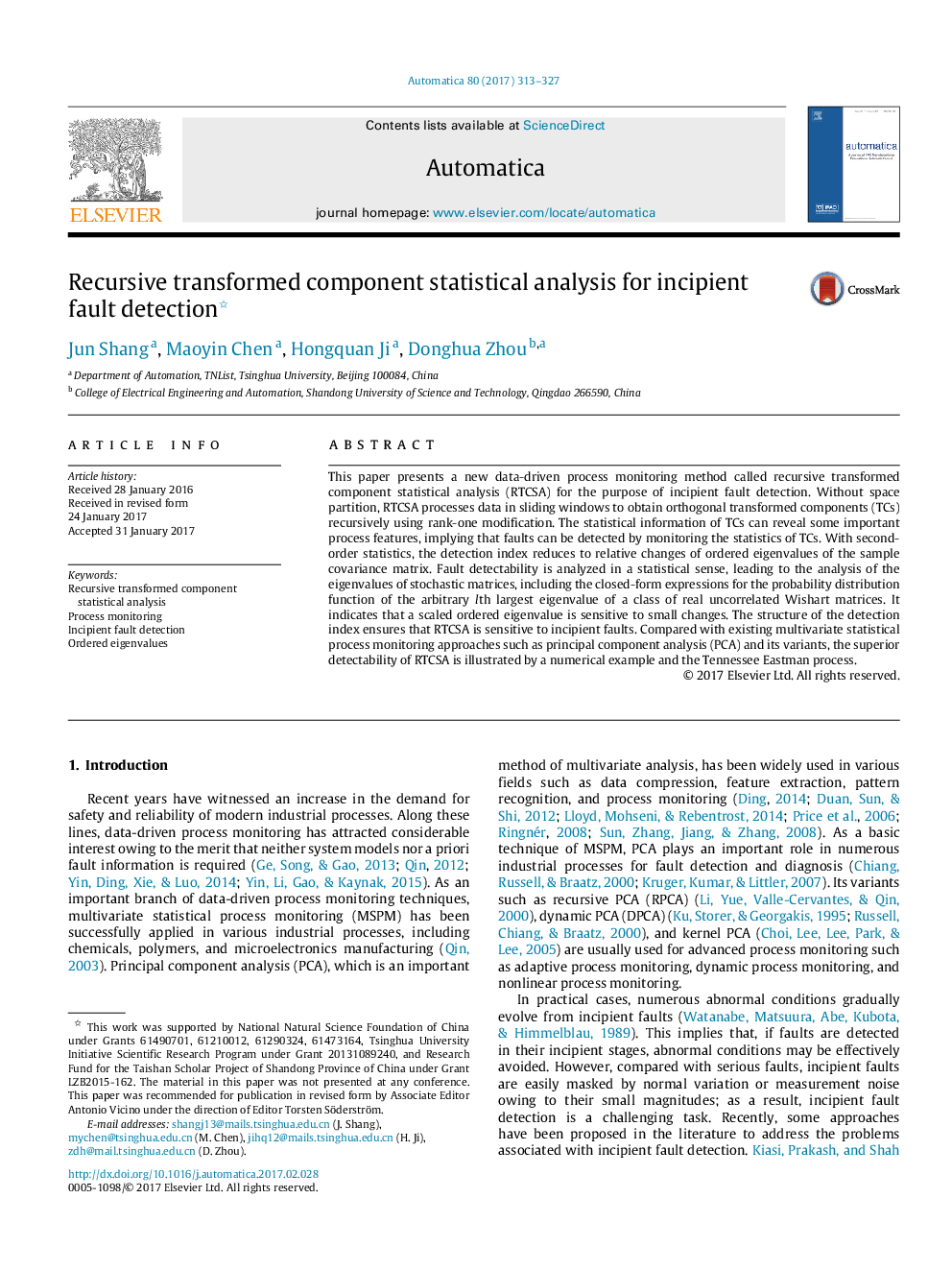| Article ID | Journal | Published Year | Pages | File Type |
|---|---|---|---|---|
| 4999890 | Automatica | 2017 | 15 Pages |
Abstract
This paper presents a new data-driven process monitoring method called recursive transformed component statistical analysis (RTCSA) for the purpose of incipient fault detection. Without space partition, RTCSA processes data in sliding windows to obtain orthogonal transformed components (TCs) recursively using rank-one modification. The statistical information of TCs can reveal some important process features, implying that faults can be detected by monitoring the statistics of TCs. With second-order statistics, the detection index reduces to relative changes of ordered eigenvalues of the sample covariance matrix. Fault detectability is analyzed in a statistical sense, leading to the analysis of the eigenvalues of stochastic matrices, including the closed-form expressions for the probability distribution function of the arbitrary lth largest eigenvalue of a class of real uncorrelated Wishart matrices. It indicates that a scaled ordered eigenvalue is sensitive to small changes. The structure of the detection index ensures that RTCSA is sensitive to incipient faults. Compared with existing multivariate statistical process monitoring approaches such as principal component analysis (PCA) and its variants, the superior detectability of RTCSA is illustrated by a numerical example and the Tennessee Eastman process.
Related Topics
Physical Sciences and Engineering
Engineering
Control and Systems Engineering
Authors
Jun Shang, Maoyin Chen, Hongquan Ji, Donghua Zhou,
